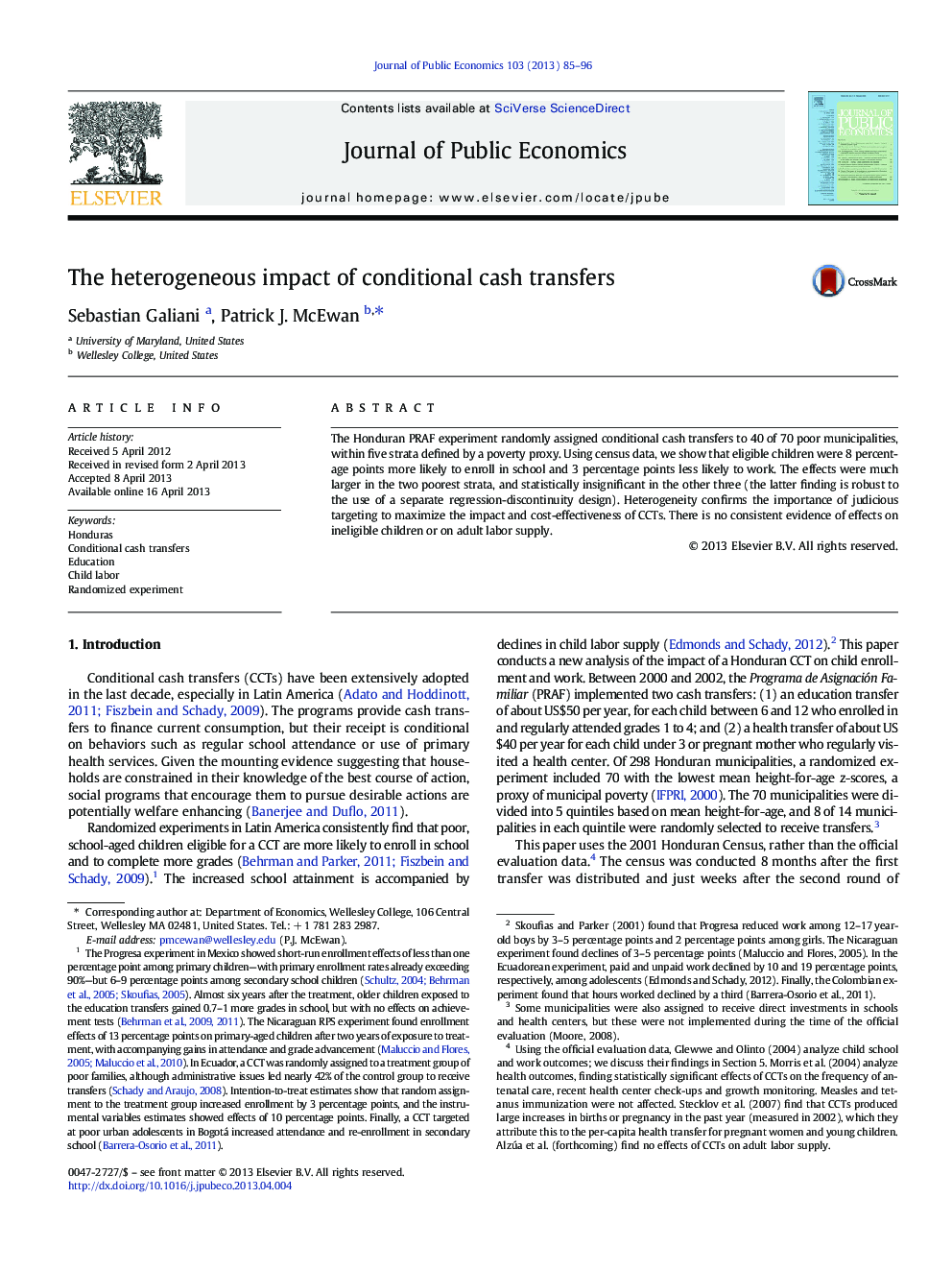| Article ID | Journal | Published Year | Pages | File Type |
|---|---|---|---|---|
| 969842 | Journal of Public Economics | 2013 | 12 Pages |
•The Honduran PRAF experiment randomly assigned conditional cash transfers to 40 of 70 poor municipalities.•In the 2001 census, eligible children were 8 percentage points more likely to enroll in school and 3 percentage points less likely to work.•But, effects were much larger in the two poorest strata, and statistically insignificant in the other three.•There is no consistent evidence of effects on ineligible children or on adult labor supply.
The Honduran PRAF experiment randomly assigned conditional cash transfers to 40 of 70 poor municipalities, within five strata defined by a poverty proxy. Using census data, we show that eligible children were 8 percentage points more likely to enroll in school and 3 percentage points less likely to work. The effects were much larger in the two poorest strata, and statistically insignificant in the other three (the latter finding is robust to the use of a separate regression-discontinuity design). Heterogeneity confirms the importance of judicious targeting to maximize the impact and cost-effectiveness of CCTs. There is no consistent evidence of effects on ineligible children or on adult labor supply.
